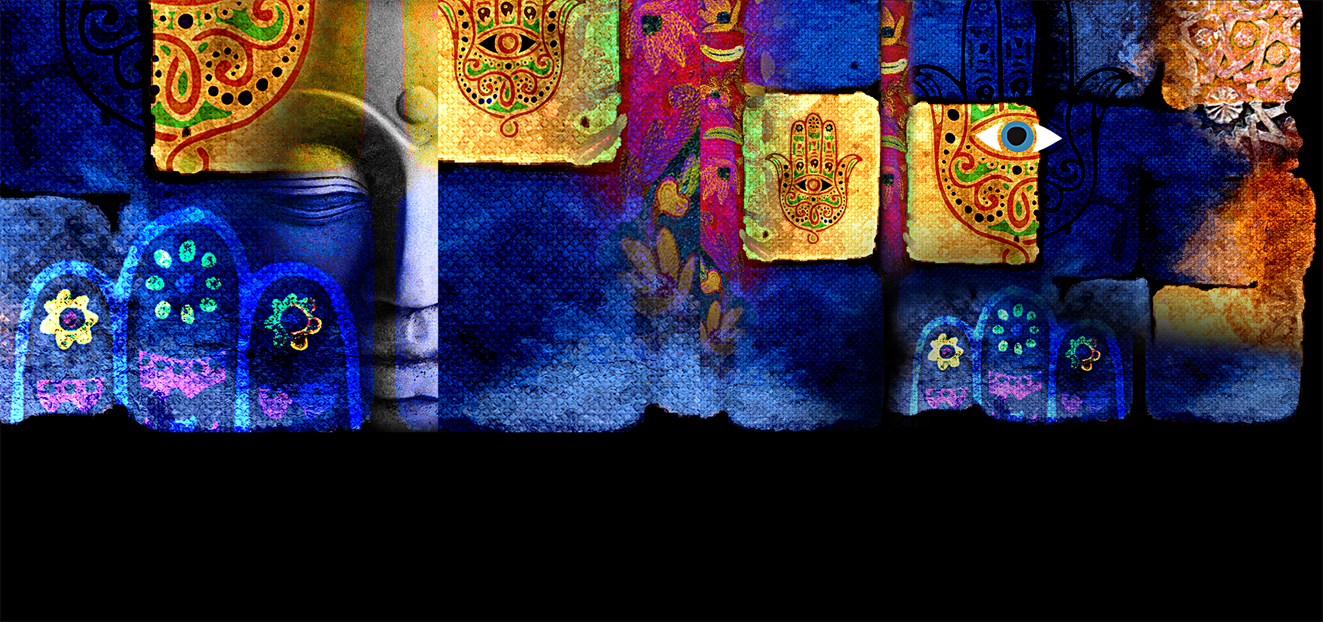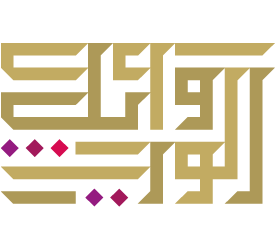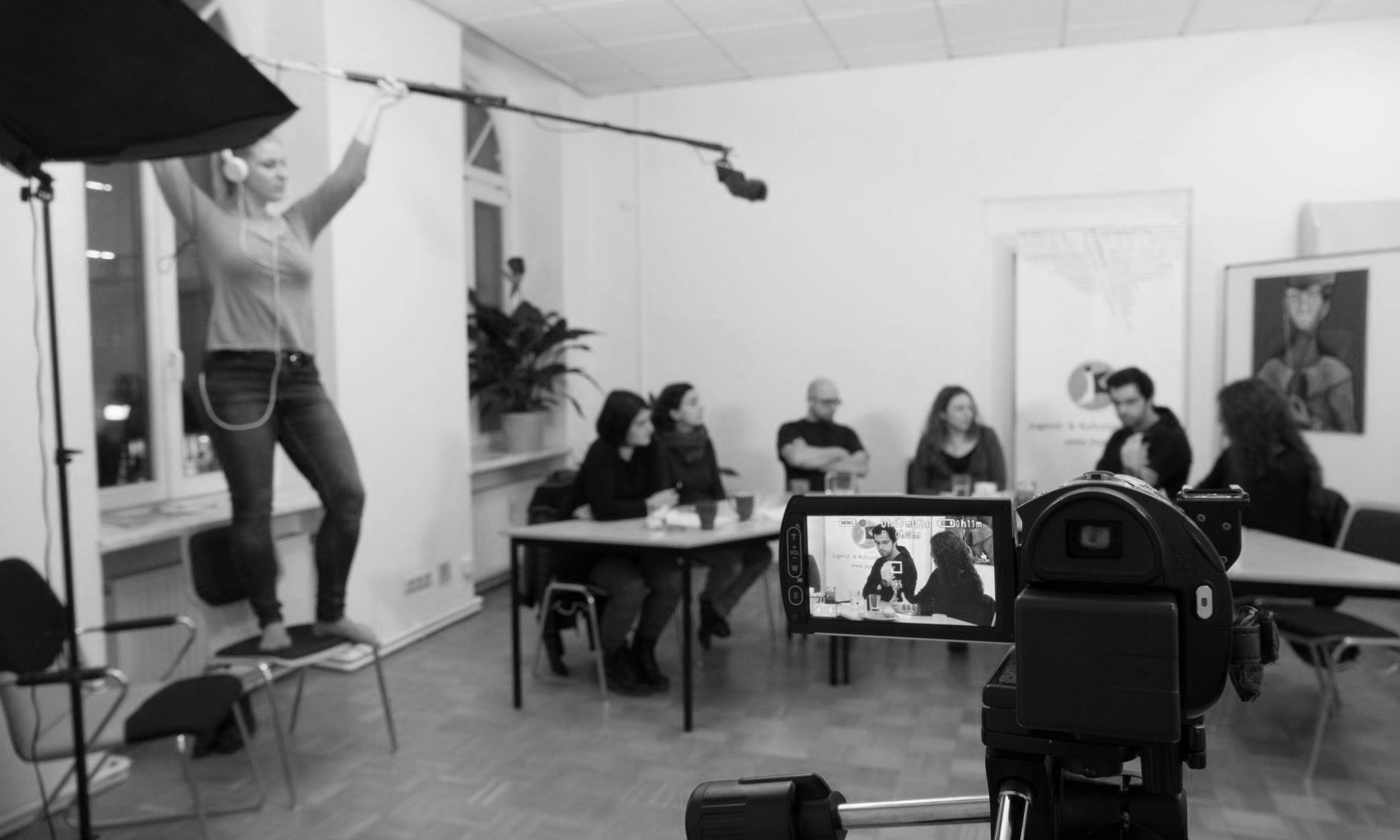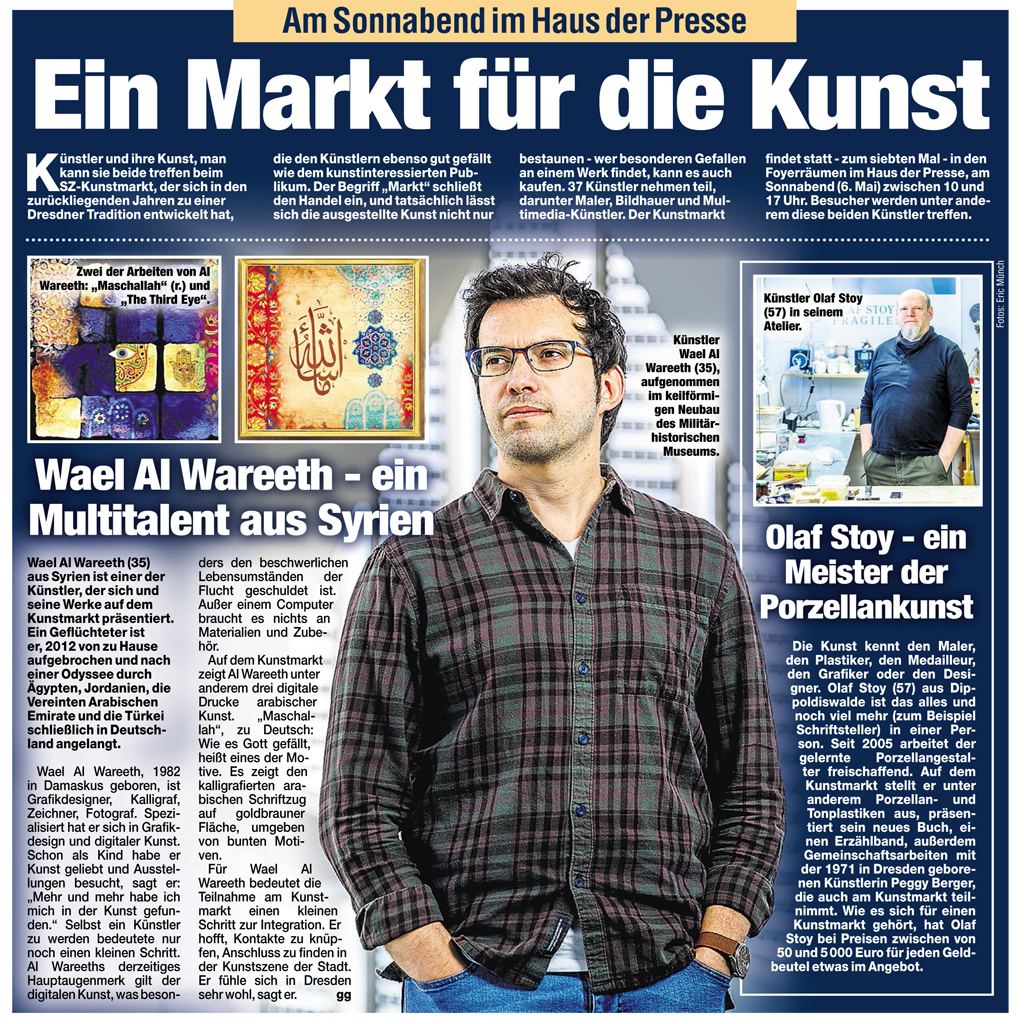
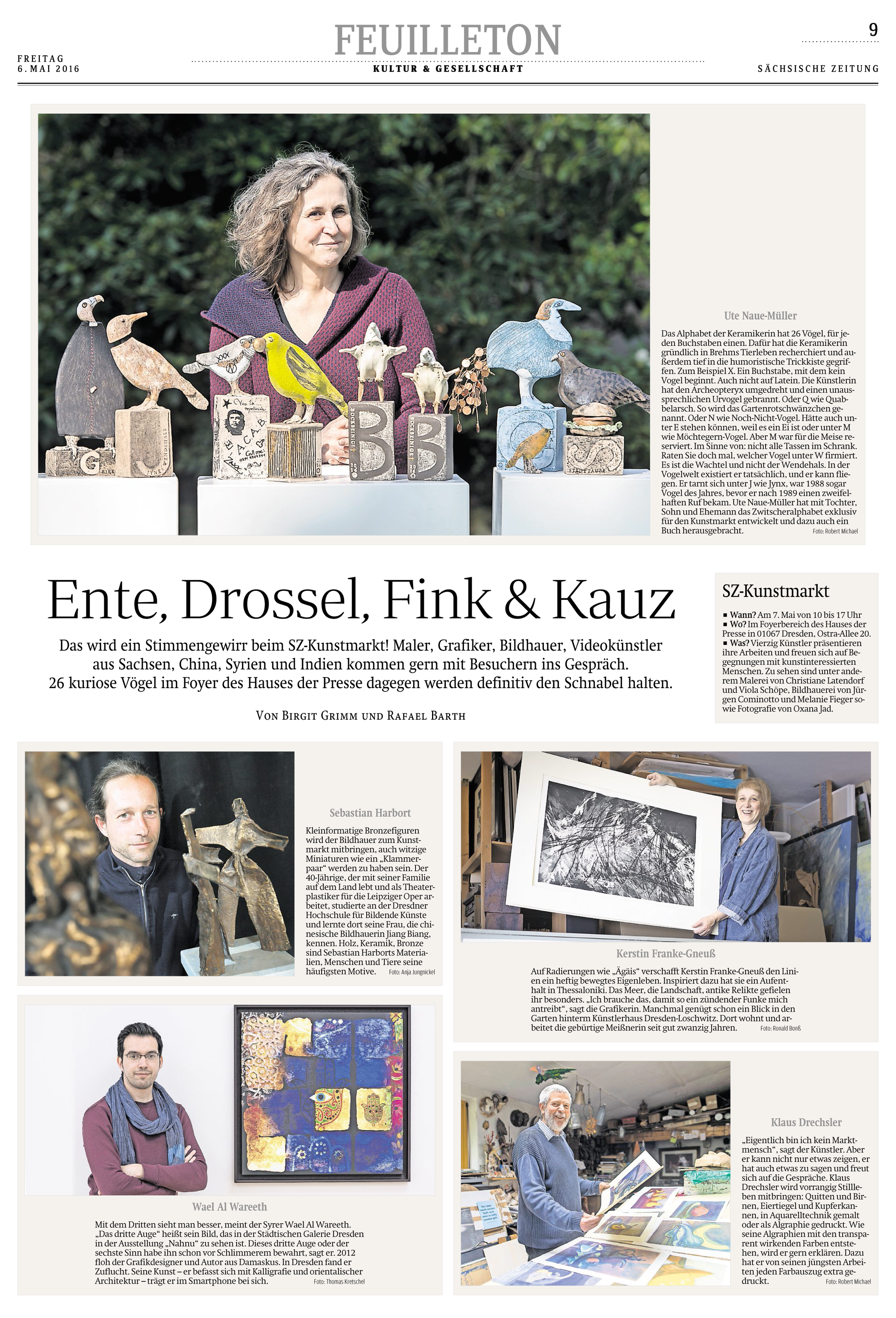
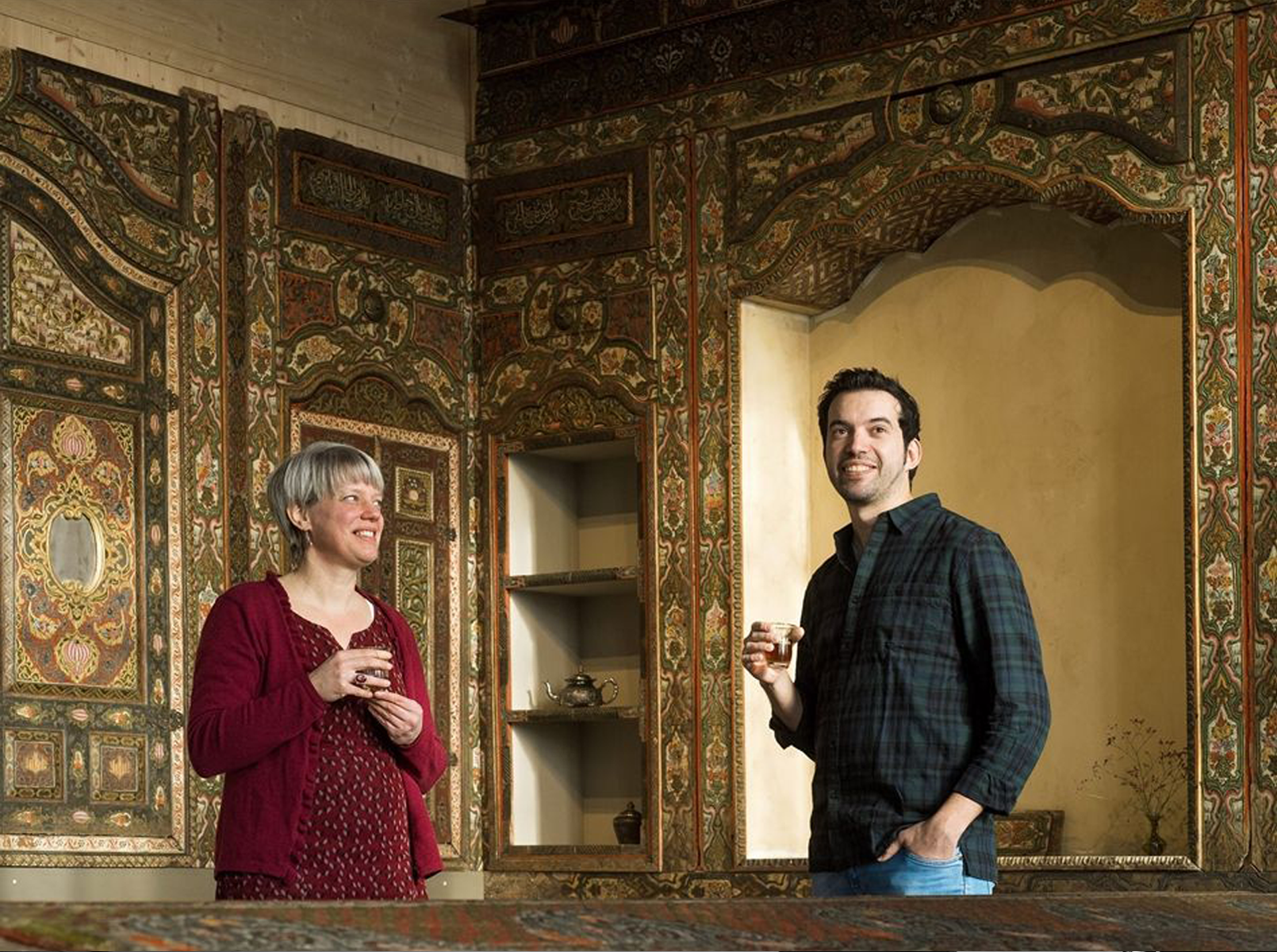
Anke Scharrahs and Wael El Waryith in the Dresden Damascus Room, which is being restored in the Japanese Palace and is also exhibiting there as an object of the Ethnographic Museum
© kairospress
Like an elephant in the Arctic Ocean
The Syrian artist Wael El Waryith lives in Dresden and presents the Damascus Room
By Birgit Grimm
Masha Allah! In God’s hand, Wael may have thought El Waryith when he first stood in Dresden’s Damascus room a few days ago. The Syrian is enthusiastic, fascinated and full of respect for the work of Anke Scharrahs. The restorer has been working for almost twenty years to revive the precious wood paneling of an oriental reception room. One day the room will be in full bloom in the Japanese Palace. “In Syria, so many historic houses were destroyed in the war in recent years. Nothing remains for the future. And in Germany, so much is being done to preserve this room, “says El Waryith. He spontaneously promises to donate for the restoration of the Damascus Room. “I would dance on the street for that too,” he says and laughs. But he does not have to. Wael El Waryith has other talents. He is graphic designer and author. He will give away his works of art, one of them entitled “Masha Allah”, and in return ask for a donation for the restoration of the Damascus Room. That sounds complicated.
One and a half years ago, the now 34-year-old came to Dresden. Boredom is a foreign word for him. “I’ve been involved in exhibitions and interesting projects, working with clubs, and learning every day.” And what exactly? “Lots about life and the people here. I do not like to sit at home, so in the accommodation, but I prefer traveling in the city and make my observations. “He also learns German, of course. The picture donation is his farewell present for the Dresdner. On February 13, he flies to Jordan to meet his wife Ruba. She lives in Dubai. The war in Syria has separated the two. To get a visa for the same time and the same country equals for them a six in the lottery. They have not seen each other for more than five years.
In Dresden, the young man established many contacts. “It was a wonderful time, so I am very grateful,” he says. He has immortalized this gratitude calligraphic. He translated the national anthem into Arabic kufic script. He gave away sixteen copies of the high-quality print to visitors to the exhibition “Nahnu”, which the association Welcome to the Highlands e. V. and realized in spring and in cooperation with the Dresden City Museum. Also from the “Song of the Germans” in Arabic he prints more prints, if there is interest in it. “There are excellent printers here, I like that.”
In the Kunstgewerbemuseum of the Staatliche Kunstsammlungen Dresden, Wael worked on “Creative Collisions” in the summer. The project went over tables and benches. The Syrian built a “Hakawati Chair” out of drawers and cushions, which now comes to the museum. Hakawati describes the art of public storytelling in the Arab world. El Waryith sees himself in this tradition, collects orally transmitted tales from Damascus and other Syrian cities, she writes down, wants to publish a book.
Anke Scharrahs is enthusiastic: “Hakawati is also part of the Damascus room!” They quickly find a wire. In the pictures of the graphic designer, the conservator discovers ornaments and signs that she encountered in the oriental rooms, which she explores in museums and private collections worldwide. “Here someone knows what it’s all about, and he’s there with his heart,” she says.
“No wonder,” explains El Waryith. “Before I studied graphic design and visual communication, I spent three years working in a workshop that produces such paneling as an outfit for hotels and businesses.” And they are all talking shop, telling themselves which Damascene city palaces they worked in and which Baker in which district is the best.
Wael El Waryith also wants to leave his “Third Eye”, a high-quality, framed canvas print, in Saxony “Everyone has it, this meta-organ, which consists of all the thoughts, sensations and experiences of a human being.” His seventh sense is, which makes him decide correctly in some difficult situations, he says. And he tells a dream: “I swim in the Arctic Ocean, all icebergs around me. But I’m warm because I know that below me an elephant cow is swimming with her baby. “Absurd contexts. But everything fits. For what would life be without confidence?
